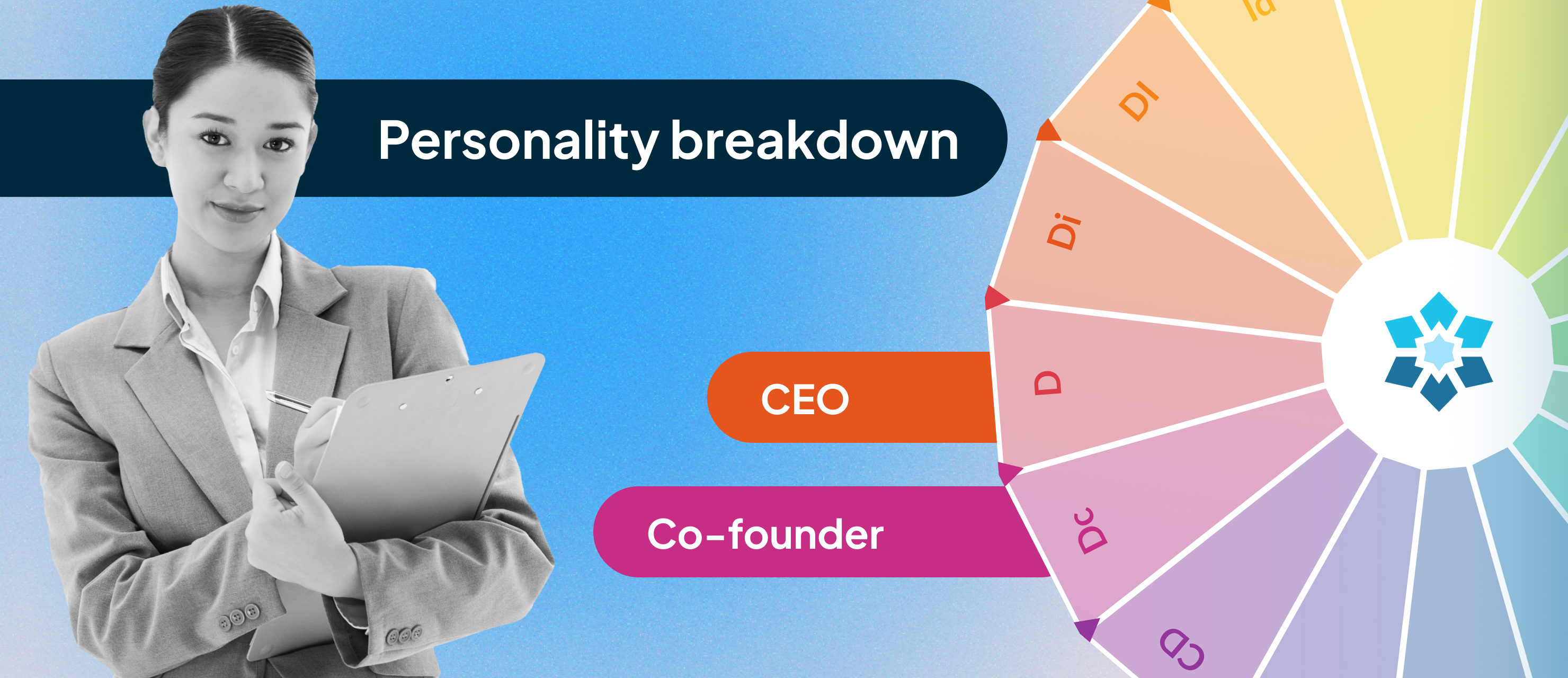
In today's global business landscape, cultural sensitivity is not just an optional skill but a necessity. The ability to understand and adapt to cultural differences is more than a mark of global awareness—it has become a critical factor for achieving success in cross-cultural sales. As businesses continue to stretch their reach beyond national borders, they encounter an array of markets, each teeming with unique cultural norms, values, and communication styles.
Not recognizing and adapting to these cultural differences can lead to a cascade of miscommunication, misunderstandings, and missed business opportunities. But when sales professionals proactively embrace these differences, they can bridge the gaps between various cultural contexts. This helps in building stronger connections with customers, tailoring sales strategies to meet the specific needs and expectations of each target market, fostering long-term relationships, and achieving sales success in diverse global markets.
This begs the question: as a sales professional, how can you pitch effectively to different cultures when you've never interacted with international prospects? That’s where personality intelligence platforms like Crystal come into play. In this blog, we'll provide 10 actionable tips for selling to your international customers. Let’s dive in.

The Challenges of Selling to International Customers
Doing business on an international scale is an exciting and rewarding venture, but it also comes with its own unique set of challenges. The promise of global reach and diversification is paired with the necessity of understanding and adapting to the intricate tapestry of international cultures and business practices.
While language barriers and time zone differences can present significant challenges, the navigation of varying business etiquette across different cultures is perhaps the most critical challenge to navigate. What's considered a formal, professional demeanor in one country might be seen as cold and unfriendly in another. For instance, the American norm of getting straight to business can be perceived as rude or abrupt in cultures where relationship-building and small talk are business prerequisites. Understanding and adapting to these differences in business etiquette is key to building successful relationships.
The cultural context presents another layer of complexity. Each country has its unique set of values, norms, and expectations that inform its approach to business. For example, the decision-making process can vary significantly across cultures. Some may prefer a top-down approach, while others rely on consensus. A sales approach that does not account for these cultural variables may end up alienating potential clients.
Overarching all of these is the requirement to maintain respect for the client's culture while effectively communicating the value of your product or service. This necessitates not just an understanding of the client's cultural context, but also an ability to adapt and mold your sales strategy to fit that context.
In essence, selling to international customers is like being a cultural chameleon—adapting colors to match the surroundings while maintaining your core. It requires a balance of diplomacy, flexibility, cultural intelligence, and a deep understanding of not only your product's value proposition but of your prospect themselves.
Using the DISC Personality Model for Cross-Cultural Selling
Having an understanding of your prospect’s cultural norms is crucial, but you can’t neglect the individual preferences and personality type of your specific buyer. But how can you cater your pitch to fit the personality of a prospect you’ve never met?
Crystal, a personality intelligence platform, uses the DISC model to classify personalities into a few categories that we refer to as D (dominant), I (influential), S (steady), and C (conscientious). This framework provides valuable insights into behavioral tendencies, communication preferences, and decision-making patterns.
Below is a breakdown of common personality traits within each of the categories in DISC, and what kinds of language would likely resonate with each:
Dominance (D)
Individuals with a dominant personality type are often assertive, results-oriented, and driven by challenges. They tend to be decisive, direct and focused on achieving goals. In sales, D types value efficiency and take charge of situations. They respond well to direct communication and appreciate clear benefits and bottom-line results.
Influential Types (I)
Prospects with an influential personality type are sociable, persuasive, and enthusiastic. They enjoy interacting with others, have excellent communication skills, and are skilled at building relationships. I-Types thrive in sales environments that involve social interactions, networking, and relationship-building. They respond well to personalized approaches, recognition, and collaboration.
Steady Types (S)
Individuals with a steady personality type are patient, reliable, and supportive. They value harmony, stability, and consistency. S types prefer cooperative and collaborative environments and prioritize long-term relationships. In sales, they appreciate trust-building, clear expectations, and reassurance.
Conscientious Types (C)
Those with a conscientious personality type are detail-oriented, analytical, and focused on accuracy. They value quality, precision, and logical decision-making. C types prefer structured environments and are diligent in their approach to sales. They respond well to evidence-based information, data-driven solutions, and thorough explanations.
Each DISC type has distinct preferences and communication styles. Understanding these differences allows you to tailor your approach to each individual—building rapport, enhancing communication, and increasing the likelihood of success.
 Top 10 Tips for Sales Reps Engaging in Cross-Cultural Selling
Top 10 Tips for Sales Reps Engaging in Cross-Cultural Selling
To truly excel in international sales, it's not enough to simply be aware of cultural differences—you must actively incorporate this knowledge into your sales strategy. This section presents the ten actionable tips to help you adapt your approach to resonate with different cultures, establish strong rapport with your international clients, and ultimately, close the deal.
|
|
Build Rapport and Trust: Use tools like Crystal to familiarize yourself with your prospect ahead of time. By understanding your prospect’s personality type, you’ll be able to meet them where they are and make a great first impression—allowing you to build trust and rapport from day one. |
|
|
Learn Local Customs and Etiquette: A deep understanding of local customs will allow you to infuse these elements into your sales interactions—showing respect for the local culture and allowing you to communicate effectively with your prospects. For example, if Middle Eastern customers value hospitality, so by engaging in small talk before jumping into business discussions, your prospect will feel respected and will be more likely to enter your conversation with open ears. |
|
|
Adapt Your Communication Style: Each culture has its preferred communication style. Some value directness, while others prefer a more indirect, subtle approach. Using personality intelligence tools like Crystal can help you understand these differences in personality types and set your pitch off on the right track. For example, when dealing with a Brazilian client with an I-Type, engage in enthusiastic, expressive conversations to make them feel comfortable. |
|
|
Negotiation Styles Vary: Be mindful of cultural differences in negotiation styles. Some cultures may prefer aggressive bargaining, while others might lean towards a more collaborative discussion. Negotiating with an American client? Remember, they prefer a linear, objective-focused approach to negotiations. |
|
|
Use the DISC Personality Model: By utilizing personality intelligence platforms like Crystal, you can leverage the insights provided by the DISC model to understand and adapt to local communication and behavioral styles. For example, if you’re dealing with a D-Type German executive, the DISC model will remind you to be concise, direct, and get straight to the point. |
|
|
Localize Your Language: Use language and terminology that resonates with the local audience. This extends beyond just language translation—it's about making your message relatable and understandable. For example, learning some basic German phrases to break the ice with your German prospects and make them feel respected. |
|
|
Leverage Local Partnerships: Building local partnerships and networks can significantly boost your credibility and increase acceptance of your product or service. For example, partnering with a well-known local distributor in Spain will help you gain credibility with Spanish clients. |
|
|
Non-Verbal Cues Matter: Pay attention to cultural norms around body language, personal space, and other non-verbal cues. These can make or break your sales interactions. Be mindful of your body language when meeting Japanese clients, as they tend to read non-verbal cues carefully. |
|
|
Understand Hierarchy: The role of hierarchy and decision-making varies in different cultures. In some cultures, like China, decisions are made by senior-level executives, while in others, decision-making may be more distributed—so make sure you’re pitching to the right person. |
|
|
Be Patient and Respectful: Recognize that each culture has its own pace and approach to doing business. For example, in India, business discussions are often lengthy, involving a lot of small talk. Be respectful and patient as you navigate these differences—it’ll pay off in the long run. |
Crystal Can Help You Master Cross-Cultural Sales
In an increasingly global marketplace, the art of cross-cultural selling is an essential skill for sales reps. By understanding cultural nuances and adapting your sales techniques accordingly, you can build long-lasting relationships with international customers. Leveraging tools like the DISC assessment and personality intelligence platforms like Crystal, you can further enhance your ability to communicate effectively across cultures.
Remember, the world of global sales is a mosaic of diverse cultures and practices. Adapt, learn, and thrive in it. As a first step, we encourage you to Predict 10 Personalities for Free with our Chrome extension today. Experience the power of insightful selling firsthand with Crystal - Sign up today.


.png?width=80&height=80&name=communication%20(1).png)


.png?width=77&height=77&name=communication%20(1).png)
.png?width=77&height=77&name=team%20(1).png)
.png?width=77&height=77&name=meeting%20(5).png)










